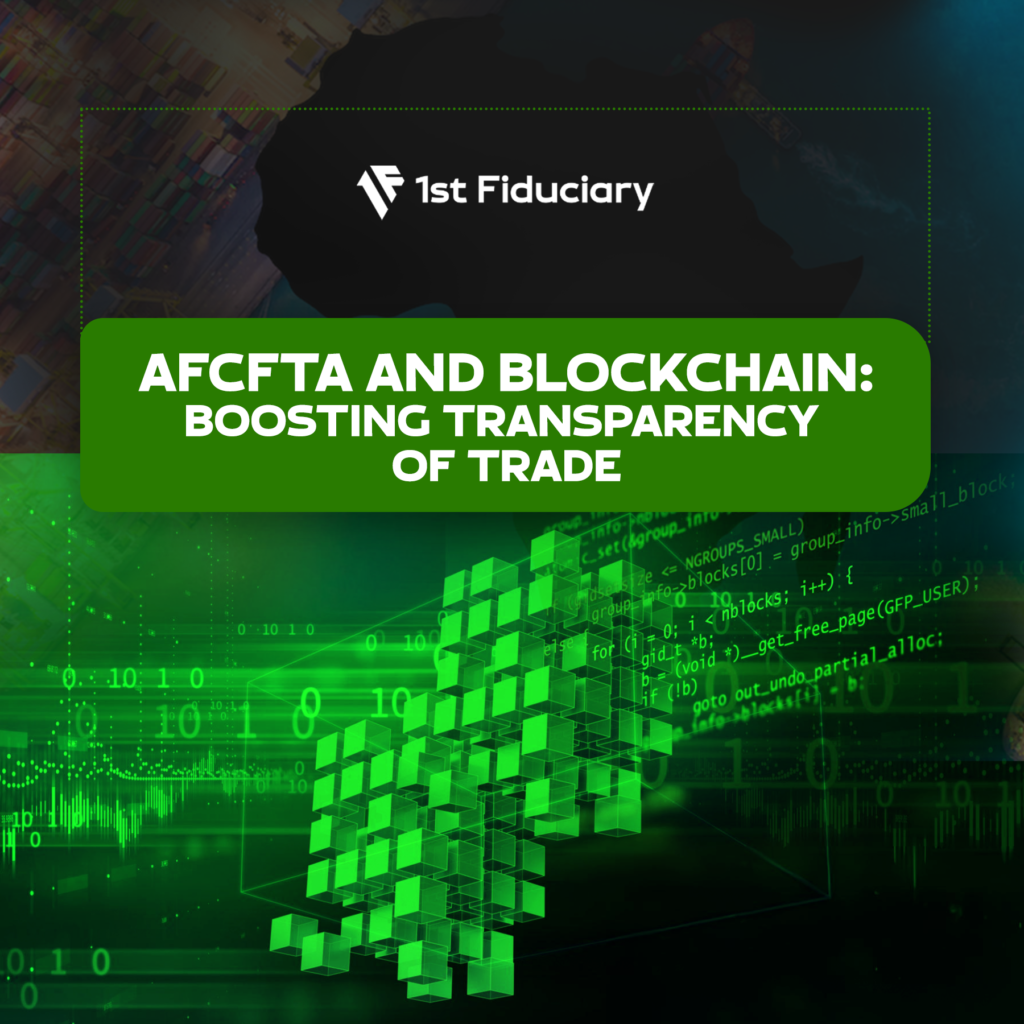AfCFTA and Blockchain: Boosting Transparency of Trade
The AfCFTA is arguably one of the most ambitious trade agreements ever made and is designed to reshape the economic landscape in Africa by boosting intracontinental trade[1]. For it to reach its full potential, several critical challenges must be addressed, particularly in raising the level of transparency, trust, and efficiency in trading processes.
In this edition, we explore how blockchain can revolutionize trade under AfCFTA by enhancing transparency, reducing fraud, and facilitating seamless operations.
What is Blockchain, and Why Does It Matter for AfCFTA?
Blockchain is a secure, transparent, and decentralized digital ledger with the added ability to record transactions irrevocably[2]. This makes it a very efficient tool for trade. In essence, with AfCFTA in place, blockchain can:
- Build Trust: Provide the same truth to all stakeholders in a trade.
- Increase Transparency: Track goods from origin to destination in real time.
- Cut Costs: Automate customs clearances and payment settlements.
Key Applications of Blockchain in AfCFTA
1. Trade Documentation
One of the biggest barriers to trade in Africa is the ineffective and paper-based system of managing trade documents. Blockchain digitizes and secures trade documents such as:
- Bills of lading
- Certificates of origin
- Customs declarations.
This reduces errors, delays, and fraud.[3].
